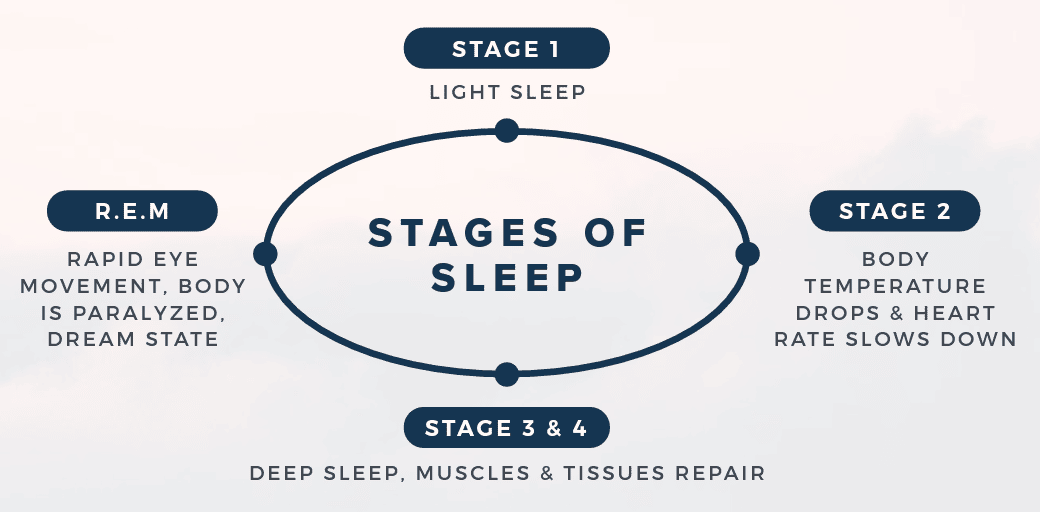
Home » Understanding the Stages of Sleep
Understanding the Stages of Sleep
- September 28, 2022
- Ashley Tyrner
Eating nutritious foods and maintaining a regular physical activity regime are certainly crucial components of a healthy lifestyle. An additional aspect includes restful sleep, as improving the quality of your sleep on a nightly basis supports healing throughout the brain and body. Two keys to a restorative night of shut-eye that will improve your sleep cycles are to have an evening routine and to eat nocturnal-friendly foods.
Sleep Quality Variables
Sleep quality can be characterized by the amount of rapid eye movement (REM) sleep along with slow wave sleep (SWS). Each night, the body progresses through around five to six of the sleeping cycles necessary for an adequate night’s rest. During the beginning stage, the brain produces slower alpha and theta waves, keeping you still in a light sleep, and easily able to be woken up. The second stage includes the slowing down of the heart rate and dropping in body temperature. The third and fourth stages are when you experience “deep sleep” where eye movements and muscle activity stop, and your brain produces delta waves which allow you to drift off even further. The REM (rapid eye movement) cycle, as the name implies, involves the eyes darting around very quickly while the body is able to dream, a very important factor for memory and mood. Breathing, blood pressure, and heart rate increase during this stage and the brain processes the day’s information.

Improving Sleep
Food intake during the nocturnal, sleeping period (dinner and late night snack) may be correlated with negative effects on sleep quality in individuals. Heavy foods that require a high degree of digestive strength may be worth reconsidering when wanting to improve your sleep. Fatty, fried, and cheesy foods take longer to digest in the body, and if the internal organs are using a majority of their energy to break down foods, then they are still being up and active during a period when you want them to be more dormant, such as before bed. Make sure to leave at least two hours between when you finish your last meal and when you doze off to bed so that your body can fully digest your foods beforehand, thus freeing your body of the digestive efforts needed to break down heavy meals.
If you need a little before-bed snack, fruits and vegetables are an easy, healthy option. Kiwifruit may have a potential link to improving sleep due to its antioxidant properties and folate content that may impact your body’s ability to rest. Whole grains that are higher in fiber are another late-night option.
In the evening, along with being mindful of what foods you are avoiding close to bedtime, try to limit your amount of screen time received from your smartphone, television, computer, or tablet. By doing this, you are reducing the amount of blue light exposure to your eyes, a variable that restricts the production of melatonin in the body. This is the natural hormone that controls your sleep-wake cycle, also known as the body’s circadian rhythm. So ditch the screens and opt for a brain-boosting activity like reading, writing, or doodling before bed. Additional wine-down activities can include light stretching and listening to soothing music.
